They say traveling is living a new life, experiencing different occasions for a short amount of time, and learning new things you can add to your everyday life. These days many people speak English and this has made traveling much easier. However, learning a few essential words and expressions might come in handy. Especially if you are planning a trip to Iran, the ancient land of poetry and metaphors in which proverbs and expressions have gone to another level, and lines of poetry are used commonly by people. Learning Persian/Iranian expressions would also be so much fun! Let’s go on a virtual trip together here and learn a few of them.
At the Grand Bazaar
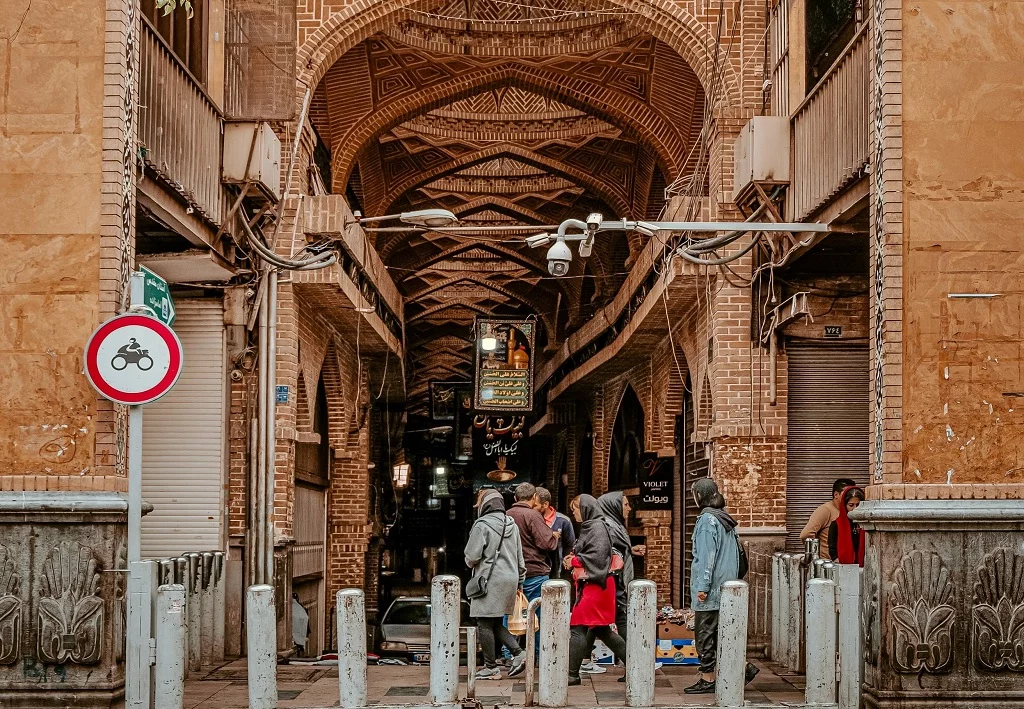
We are in an old bazaar in Tehran. The tour guide accompanying our group is talking about this old bazaar, taking us through its different sections. This is a very crowded place, people come and go, some pause in front of a shop, some stop and talk to the shop owners, and some buy stuff from them. Seeing people’s interactions is fascinating, especially here it feels a bit different.
The tour guide catches you as you are looking enthusiastically at a woman who is talking to a shop owner, and they are both smiling. The guide reaches you and says, “if you like, we can go and buy something over there, I will help you there.”
Shopping in Persian
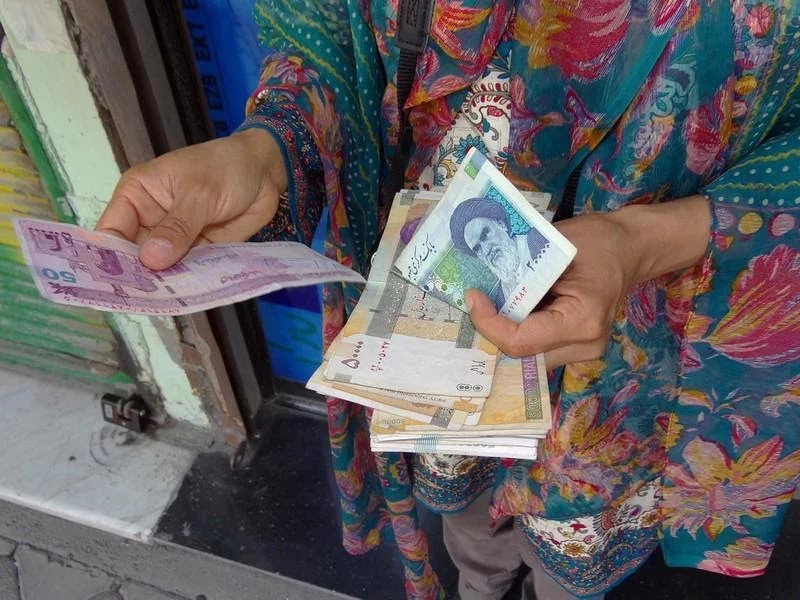
That is a spice shop. All around the shops, there are piles and piles of different spices, the smell and colors are truly magnetizing. The tour guide says as you enter the shop,” you better start by greeting them, “hello” will be “salaam” in Persian. Go ahead, try it!” Encouraged, you step inside and say “Salaam!” Soon, the shop owner turns and responds with a smile “Salaam. Befarmaid!”
He has detected the accent for sure, but his smile is welcoming and encouraging. The tour guide translates,” befarmaid means ‘here you go”, but when it’s used as an expression like now, it means welcome.” What do I say now?” you ask, and he says, “You thank them, say merci”. You say so to the owner and as you look around, you ask the guide,” but merci is French!”
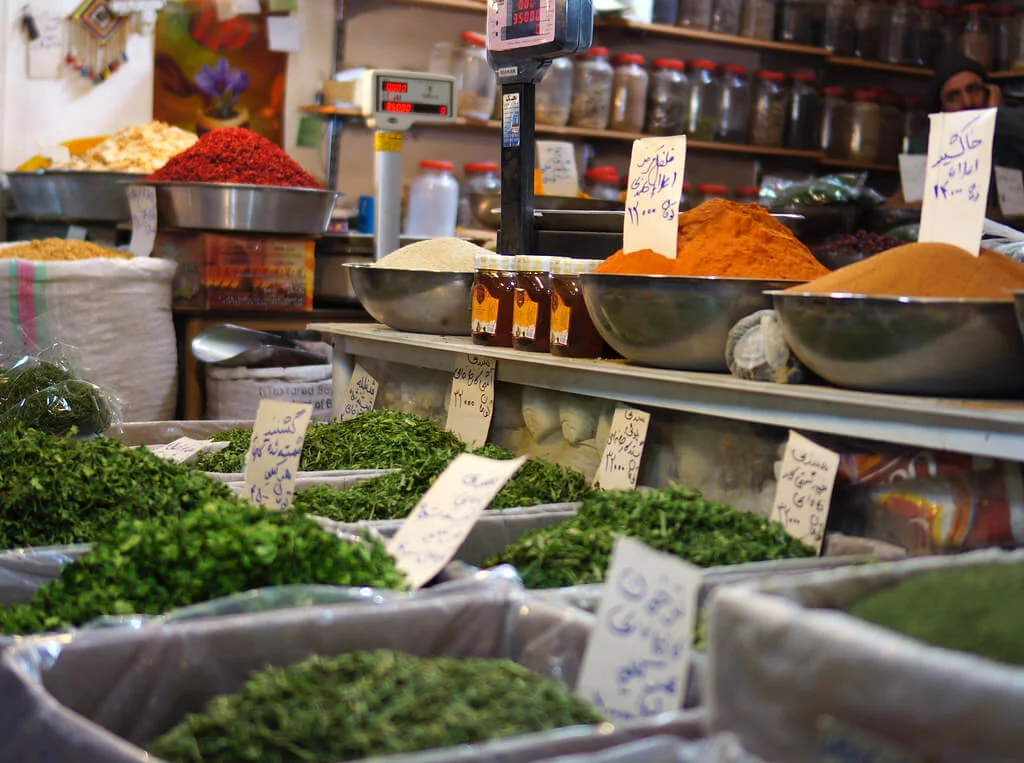
“Yes, it is! But it is used commonly in Iran. You can say ‘moteshakeram’ or ‘sepas’ also! I see you’re looking at turmeric here! Do you want some? Go ahead and ask the price. You have to say ‘bebakhshid, een chande?’ which literally means, excuse me, how much is this?”
Captivating Cultural Concepts
After practicing it a few times with him, you ask the shop owner. When he tells the price and is ready to give you the turmeric, the tour guide who seems to be enjoying this a lot says,” now there is a cultural concept here you would want to know! You can ask him for a cheaper price, and have a small talk over it! It literally means haggling over the price! Bazaars have been the heart of economy and commerce for so long in countries like Iran, and this concept which is known as ‘chooneh zadan’ is a common task. It means that you talk the price out with the owner and you two try to reach a price which is good for both of you! And as you are going to talk for a couple of minutes, one can see that your chin and mouth keeps moving, and this is where the expression comes from, as chooneh or chaaneh means chin, this is where the expression comes from!”
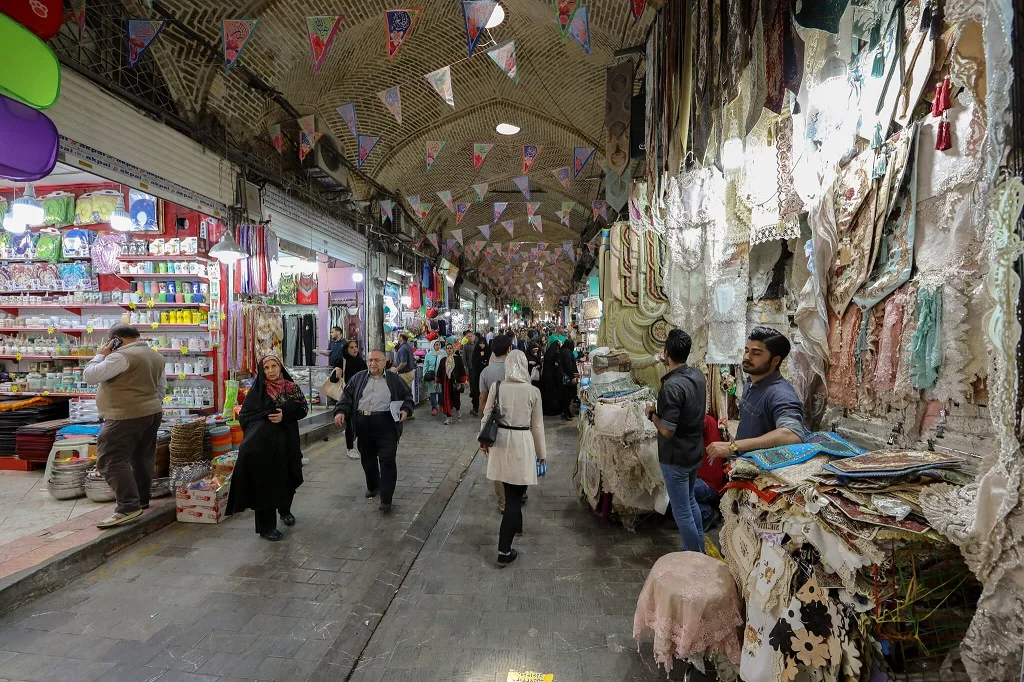
With the help of the tour guide, you start ‘chooneh zadan’ and surprisingly get the turmeric at a lower price, meanwhile, you try to keep in mind the small words here and there, like ‘bale’ and ‘na’ which are yes and no. At the end of this joyful process, you thank the shop owner again saying ‘sepas!’ He smiles and says ‘khahesh mikonam’, the guide translates as “you’re welcome, now you can say goodbye, it will be Khoda negahdar in Persian. It means may God protect you”.
Walking out of the shop into the crowded bazaar again, you ask the tour guide about another expression a woman said at the shop when she was supposed to thank the owner.
New Expressions
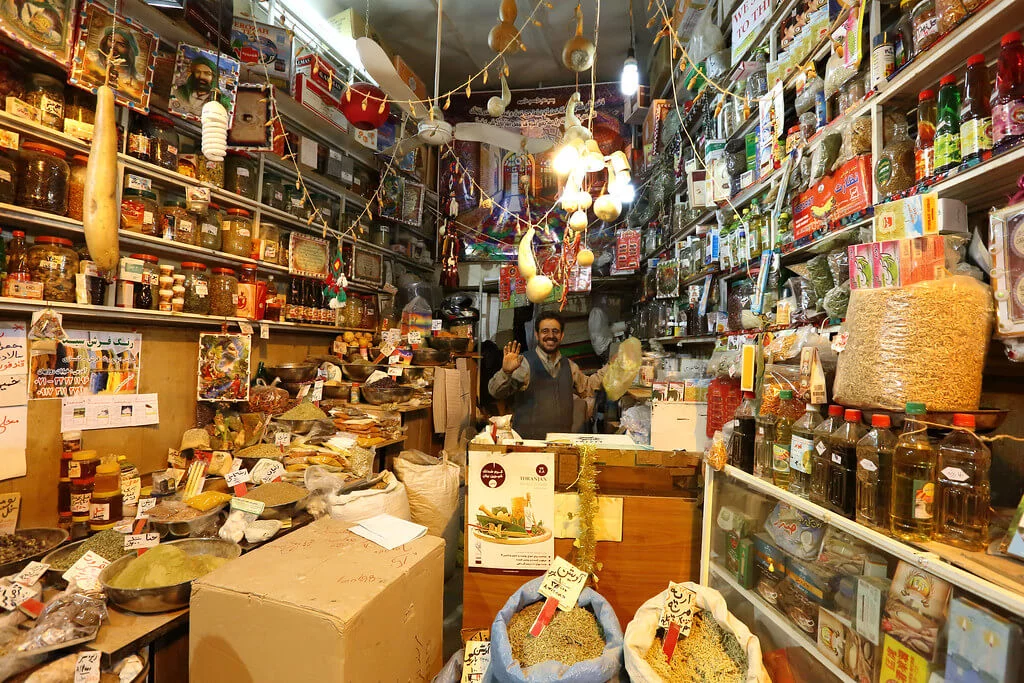
“Oh, she said ‘daste shoma dard nakone’, right? That means thank you as well. Although a word for word translation would be ‘may your hand never be tired’, it is common in our culture that we reply with a compliment or a kind and polite gesture with a compliment in return. On this occasion, we can demonstrate it as the shop owner hands the woman her package, and he uses his hands to work hard, so we wish him good luck!”
As you are enjoying this conversation, you ask him if there are other expressions commonly used that include a body part, like hand in the last one.
“Oh yeah! The eye is the organ that has many metaphorical expressions! For example, the polite way of saying okay is ‘chashm’, which literally means the eye. Sometimes the longer term is used which is ‘be ru-ye cheshm’ which means on my eye and is sometimes accompanied with a gesture, a hand will be put on one eye, it all shows respect. When such an expression is used and is accompanied with the gesture, it shows how important the thing which is being asked and the person who is asking it are to us. And when you say it to someone, they will most probably say ‘cheshmetun bi bala’. It means ‘may your eyes see no harm’.
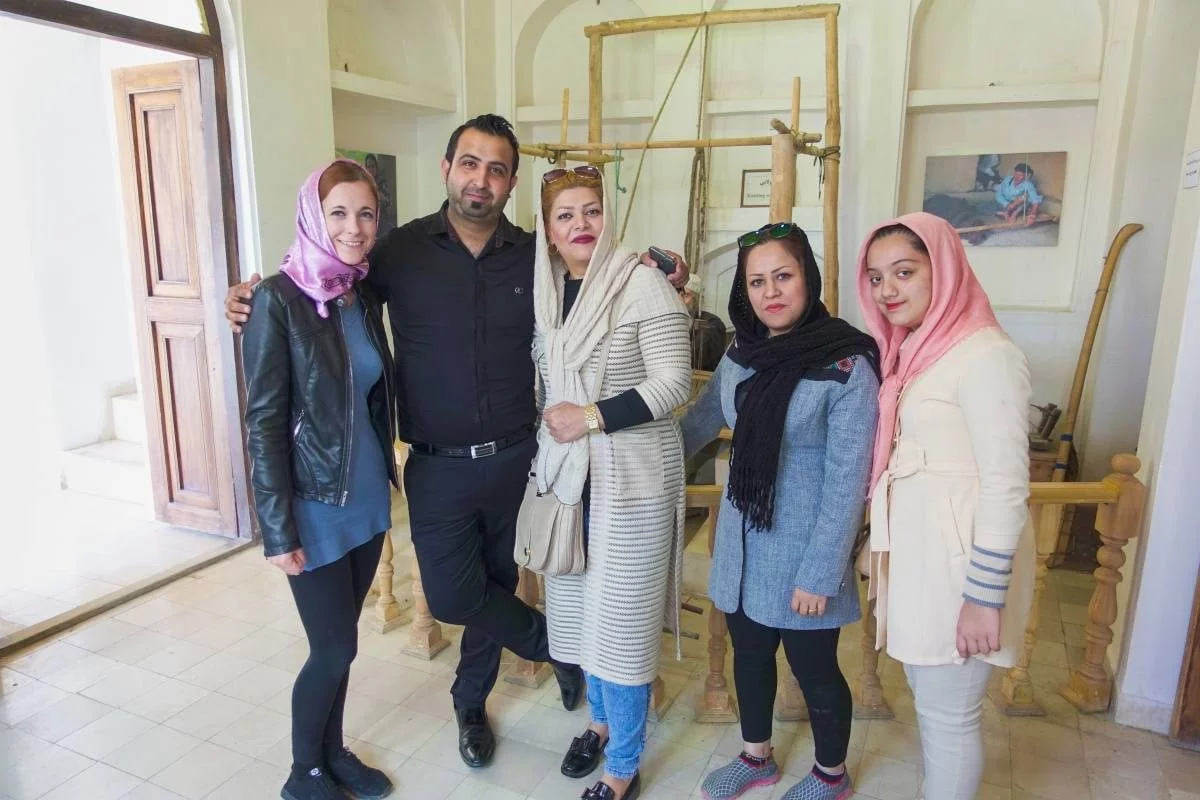
Or when we invite people to our homes, we would say ‘Ghadamet ru-ye cheshm’, which means you step on my eye! Strange, isn’t it? But it implies how dear the guest is to us that we give our precious eye to them to step on! And when the guest arrives, the host welcoming them may say ‘cheshm entezaretun budam, ru cheshm-e man ja darid’, it means that I was waiting for you and you are so precious to me, you’re actually thanking them for accepting your invitation. This conversation can go on forever, we can continue it over lunch! Have you ever had lunch in a bazaar?”
Having delicious Persian food in an old bazaar seems like a brilliant idea, especially when you know you can use new words and expressions, and having interactions with local people.